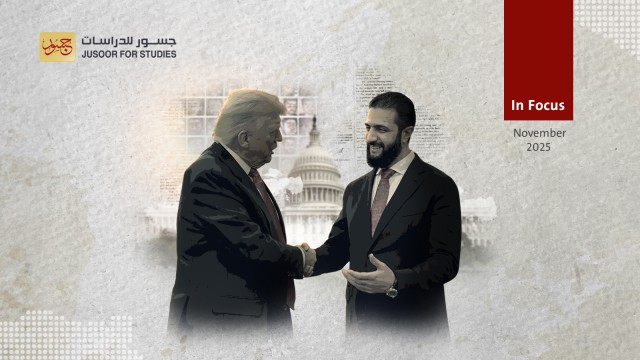Russia Pushes Assad Loyalists’ Involvement in Transition
Russia has called for officials from the toppled Assad regime to be brought into Syria’s political transition process, arguing that this is a fundamental principle enshrined in United Nations Security Council Resolution 2254 of 2015, and that the Syrian government must not marginalize or exclude professional military personnel.
Russian envoy Dmitry Polyansky made the comments on August 21, during a monthly session dedicated to discussing the political and humanitarian situation in Syria and the implementation of Resolution 2254. It was his first briefing to the Security Council since a Syrian delegation headed by Foreign Minister Asaad Al-Shaibani visited Moscow on July 31.
Polyansky spoke of officers who had “loyally served their country” until December 2024—a clear reference to the remnants of the Assad regime, whose atrocities and crimes Russia apparently sees as “loyal service to their country.”
He also emphasized that “no group should be deprived of its rights, including those who served the country under the previous leadership,” a reference to members of Assad’s Baath Party, loyalist parties and political figures of the regime, such as ministers, ambassadors, parliamentarians and so on.
Polyansky added that “upcoming parliamentary elections must provide an opportunity for all ethnic, religious, and social groups to participate in forming the new legislative body.”
This clearly suggests that Russia objects to certain provisions of the new parliamentary electoral system, such as a requirement that candidates must not have run for previous presidential elections or been members of the People’s Assembly or candidates since 2011—unless they prove they had defected; they must not be supporters of the former regime or terrorist organizations in any way. The system also requires that they do not advocate separatism, partition, or recourse to foreign support.
The Russian envoy’s briefing included various points of international and domestic incitement against the new Syrian government, presented as worrying signs from ethnic and religious minorities, claiming they still feel insecure, fear persecution on ethnic and religious grounds, are subjected to harassment and intimidation, and are being forced to flee en masse from the areas they have historically inhabited.
He described events in the coastal region in March as a “massacre against the Alawites,” using similar language regarding violence in Suwayda province and the use of force on the ground to deal with such cases. He also said that Russia is looking forward to the publication of the full report of the Syrian Commission of Inquiry on events in March and a detailed discussion of the report at the Security Council.
Internationally, Russia is seeking to obstruct U.S. and EU efforts to lift UN sanctions against Syria and fully recognize the new Syrian government. Within Syria, Moscow is seeking to regain the influence it lost with the fall of the Assad regime, by reinstating its military and civilian allies, on the pretext of the principle of inclusiveness enshrined in Resolution 2254.
Russia is also seeking to portray itself as the protector of minorities in Syria—hence the briefing’s references to the Alawites, Druze, Kurds, and Orthodox Christians.
Ultimately, it appears that despite Moscow welcoming the Syrian delegation to Moscow, the two sides did not reach an understanding. Russia still has reservations about the new rulers in Damascus, even though it has to some degree moved on from its long-standing support for the former regime.
It is clear that bilateral relations are not the bottom line for Russia, whose priority lies in its struggle with the West. Therefore, it is likely to remain ambivalent, and its policy could shift according to international consensus. It is likely to continue sending conflicting signals, without explicitly expressing its support for the new Syrian government, even if the two sides continue to exchange visits and contacts.








